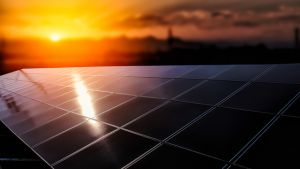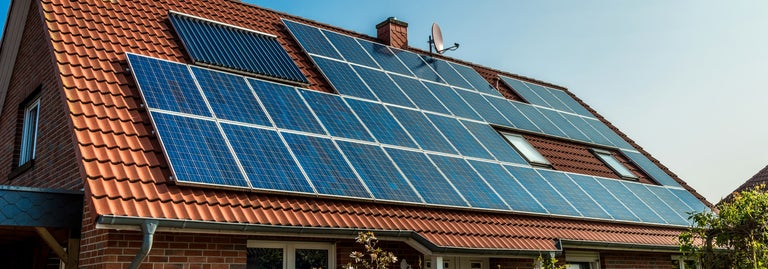Government figures reflect the growing popularity of solar in New Zealand. A recent government report shows that solar photovoltaic (PV) capacity grew 36% from 2014 to 2019, largely driven by residential uptake. It’s no surprise more and more New Zealanders are gravitating towards using solar panels to power their homes. And many households are now capable of supplying their home with free electricity during the day.
But whether you’re thinking of having solar panels installed, or are just getting to know your new source of electricity, there are a few tricks to making sure you’re making the most of your solar panels.
1. Reduce the electricity consumption of your household
The lower your overall consumption, the greater the amount you’ll be able to cover with the energy from your solar panels. If you want to save on electricity costs – regardless of whether you have solar panels – you should first try to cut down on your use of energy-hungry devices and appliances. This includes changing to energy efficient appliances and scrapping wasteful incandescent light bulbs. If you haven’t already, install LED lights as soon as possible.
2. Clean your solar panels regularly
It’s key to clean your solar panels at least once every six to 12 months. Things like mould, bird droppings and dirt will reduce the amount of sunlight the panels absorb. While you clean them, check there are no bushes or tree branches blocking the light, either. If so, trim them back, as they can hinder your panels’ capacity to receive light.
3. Maximise your electricity usage while the sun’s out
Obviously, solar panels only produce power during the day. If you’re trying to maximise your energy usage, this means using as much free electricity as you can while the sun is out. Consider charging your devices during the day and unplugging them at night. You can also get/set timers on appliances that use the most power in your home and tell them to switch off automatically at sunset.

4. Don’t go using all your appliances at once
You’ll be doing yourself a favour and conserving your electricity by using one appliance at a time. Cook dinner before you watch TV, or plug in your laptop; shower after your dishwasher has finished running; use the vacuum after you use your dryer, etc. If you use more energy than your panels are producing at any one time, you’ll fall back on to grid power.
5. Turn off standby mode
Standby mode can be an energy sucker. Electrical devices (kitchen appliances, TVs, computers, game consoles, etc) consume electricity when they’re not in use and are on standby. It might not seem like each device is using much power, but if you consider the number of electrical devices in a standard family house, standby consumption can really add up. Switching devices off will keep more coin in your wallet in the long run.
Get a better power deal with Canstar
If you’re concerned about your power usage, consider whether you’re on the best deal for your household. Because you could be getting a better rate. Canstar rates electricity providers, so you can compare your options easily:
Canstar Blue’s latest review of NZ power companies compares them on customer satisfaction and value for money. The table below is an abridged version of our full results. Click on the big button below for more details!
^ By clicking on a brand or 'details' button, you will leave Canstar Blue and be taken to either a product provider website or a Canstar Blue NZ brand page. You agree that Canstar Blue NZ’s terms and conditions apply (without limitation) to your use of this service,to any referral to a product provider from our website, and any transaction that follows. Canstar Blue may earn a fee for referrals from its website tables, and from sponsorship (advertising) of certain products. Payment of sponsorship fees does not influence the star rating that Canstar Blue awards to a sponsored product. Fees payable by product providers for referrals and sponsorship may vary between providers, website position, and revenue model. Sponsorship fees may be higher than referral fees. Sponsored products are clearly disclosed as such on website pages. They may appear in a number of areas of the website such as in comparison tables, on hub pages and in articles. Sponsored products may be displayed in a fixed position in a table, regardless of the product’s rating, price or other attributes. The table position of a sponsored product does not indicate any ranking, rating or endorsement by Canstar Blue. See How we are funded for further details.
Canstar Blue NZ Research finalised in April 2023, published in June 2023.
See Our Ratings Methodology
Compare electricity providers for free with Canstar!
How do I know if my roof is suitable for solar panels?
In the southern hemisphere, panels need to face north to get the best power production. Ideally, your roof will face north-east to north-west, with a 15° to 45° pitch. Watch out for shade on the roof, cast from things such as nearby trees, bushes, hills or other houses. As soon as panels are in the shadows, their generation levels fall considerably. It’s certainly worthwhile consulting with solar experts (and shopping around) when determining the suitability of solar for your home.
How much money will I save?
It will differ from household to household. Gen Less has a good solar tool that helps users assess the estimated financial return of solar electricity for their home. We also dive into the ins and outs of solar power in our story, Solar Power: Is it Worth it?
Enjoy reading this article?
You can like us on Facebook and get social, or sign up to receive more news like this straight to your inbox.
By subscribing you agree to the Canstar Privacy Policy


Share this article